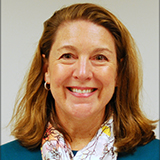This blog is the first of several we will be publishing in the weeks ahead, profiling individuals who will be speaking at OPTIMIZE 2021.
Heath Stephens is a chemical engineer who has specialized in process control and automation for twenty-five years. He began his career at an international specialty chemical producer working with both continuous and batch processes. Heath joined Hargrove Engineers + Constructors and helped kickstart the system integrator arm, Hargrove Controls + Automation. He leads the Hargrove-AspenTech APC/APM partnership implementing advanced control and performance management solutions for their clients.
Denise Staubach: Tell us about your current position at Hargrove, how long you've been there, other industry experience, etc.?
Heath Stephens: I am currently the digitalization leader at Hargrove, which means that I'm in charge of helping our clients achieve their digitalization objectives. Whether that is deploying APC or predictive maintenance tools or visualization tools, anything that takes them the next step beyond your basic process automation. We're here to help our clients achieve whatever objectives they may have.
DS: We are curious. How does one get into digitalization?
HS: It is not something that you graduate with a degree in. You almost fall into it by hanging out with the wrong crowd, I guess (followed by a laugh)! I graduated as a chemical engineer twenty-five years ago and process automation as my first job out of school, working for a specialty chemical company.
I was deploying different systems and working with different processes as far back as the late 90s, early 2000s. Even then, people were looking to move beyond classic automation. They were looking to better visualize data. I started getting more into the process story, working on process historian projects, creating cycle time analysis tools, and things like that—moving beyond automation into more data analytics.
Eventually I came over to Hargrove about 12 years ago, helping them establish their controls and automation group (the system integrator arm of Hargrove) and working alongside some really great talent.
We've grown that group substantially and as we've grown, we've added skill sets and capabilities. We also do safety system work where we can handle the entire lifecycle of safety systems, and of course one of our more recent ventures is working in the digitalization space. Although, that's really something we’ve been doing for our clients all along.
As the software tools have become more powerful and more accessible, we've seen more interest from our clients in pursuing advanced automation and reliability projects, pursuing that Industry 4.0 objective. In response, we have carved out a special group within our team to help clients tackle those objectives, which is great.
DS: How did how did the partnership with AspenTech first come about?
HS: Actually, AspenTech approached us, and we thought it was a great idea that aligned with our existing objectives. They were seeking out implementation partners because they really wanted to focus more on developing great software, leaving the actual implementation at the hundreds of client facilities that they work with to trusted partners. They knew that we had a good track record in the industry, that we had a lot of great site contacts, and the ability to be the boots on the ground for AspenTech.
If you look at AspenTech’s suite of products—which no one can rival—they were a great partner choice for us.
DS: And when did the partnership start?
HS: We officially signed up as a partner a little over a year ago, though we have used Aspen software for years. While our partnership is still fairly new, we have several collaborations under our belt already and continue to grow our pipeline of work. And it has been great.
DS: What advice would you give an organization just starting out on their digitalization journey?
HS: When I talk to clients about digitalization, it’s about a 50-50 split. About half of our clients have something specific in mind and a plan for how we can help them achieve their objective. The other half are just exploring the ideas of digitalization and in learning mode. My job with them is to educate and work with them to pick a goal to start their journey.
My advice to facility owners would be this: Find someone who works in this field that you can trust and talk to them. Between the two of you, talk about what the needs are and what solutions there are, including what other companies have done. Ten years from now the software packages will have lots of great new capabilities and new, cleaner, better ways of doing things, but that shouldn't stop people from starting their digital transition.
Moving to Industry 4.0 will not be a simple flick of a switch. It's going to be a journey. And if you start down that journey now, you can start reaping benefits. These solutions are not just something that only work in laboratory setting. These are proven industrial tools that people are taking advantage of today and are seeing real benefit from.
Also, I’d tell them, the longer you wait, the more you will fall behind. It can be a little daunting for people because digitalization incorporates so many things. Obviously, you can't do them all, certainly not all at once. Focus on those things that can provide the most value for you and work with a partner who can help you get there.
DS: From your perspective, did the volatility of the past year impact people's move to digital?
HS: There was a lot of business uncertainty for many of our companies, and when that happens people clamp down on funding. We had a lot of discussions with clients, and I think 2020 was a year of reflection and looking at the world through new eyes, but certainly the pandemic slowed investment. I think we're going to see a real bounce back in 2021 and 2022.
DS: There’s been a great deal of discussion around how the pandemic actually accelerated, maybe not the investment, but the realization they had to digitalize. How do you reconcile the two?
HS: On the one hand, most became used to Teams/Zoom and remote work scenarios very quickly. In that sense, it’s amazing when you're given a push, how quickly industry can respond. It has forced people and businesses to reconsider their work practices. While it did slow investment overall, it has also spurred a lot of innovative thinking and that's going to carry forward.
Now that we're starting to come out the other side and people are a bit more certain about what their markets look like, they're going to have more confidence now to implement some of these new ideas. You know, some of the things that clients are really looking at now is how do they optimize their processes, how do they improve their sustainability?
Sustainability is one of those things where it's good for the bottom line. It's good for the environment. It’s a Win-Win. I think we're going to have a lot of people looking forward to implementing digitalization projects with an eye towards those impacts.
DS: Let’s switch gears a bit to discuss OPTIMIZE 21 and your session on APM.
HS: My session focuses on Aspen Mtell, a predictive maintenance solution from AspenTech. It is one of those tools which some clients feel is either out of reach for them or is only used for specific applications. I will discuss that against the backdrop of digitalization becoming more accessible and more democratized. The reality is that Aspen Mtell has a lot of applications, especially because the engine that powers it isn't based on any specific industry or equipment type. Rather, it is a learning algorithm that can be applied to most anything. I’ll focus on real applications that we've had with Aspen Mtell across a variety of industries and with different kinds of equipment. It’s not all about big giant pumps, motors and refineries.
I will also discuss how Aspen Mtell is accessible and can provide great value to a range of clients, whether you're in chemicals, pharma, pulp and paper, metals and mining, etc.
DS: Will you be attending other sessions?
HS: I'm certainly interested in listening to the other speakers. One of the great things about a conference like this is that you get to hear from others in the industry about their experiences firsthand. While I do love an in-person conference, there are some nice positives about it being virtual. You can set your own schedule a bit, and if you miss a session or have a conflict you can watch the full session virtually after the fact.
We hope you will check back for upcoming interviews with some of our speakers. For more information, or register now to hear Heath and many others.
Details for Heath Stephens’ Session:
Thursday May 20, 10:15 AM - 10:45 AM EDT (30 Min)
Experience Using Aspen Mtell® to Gain Value Across Industry Verticals
This paper discusses experiences implementing Aspen Mtell APM solutions across various industries. Can one software package deliver value in industries as different as Oil & Gas, Pharma, and Pulp & Paper? Similarities and disparities are discussed.





Leave A Comment